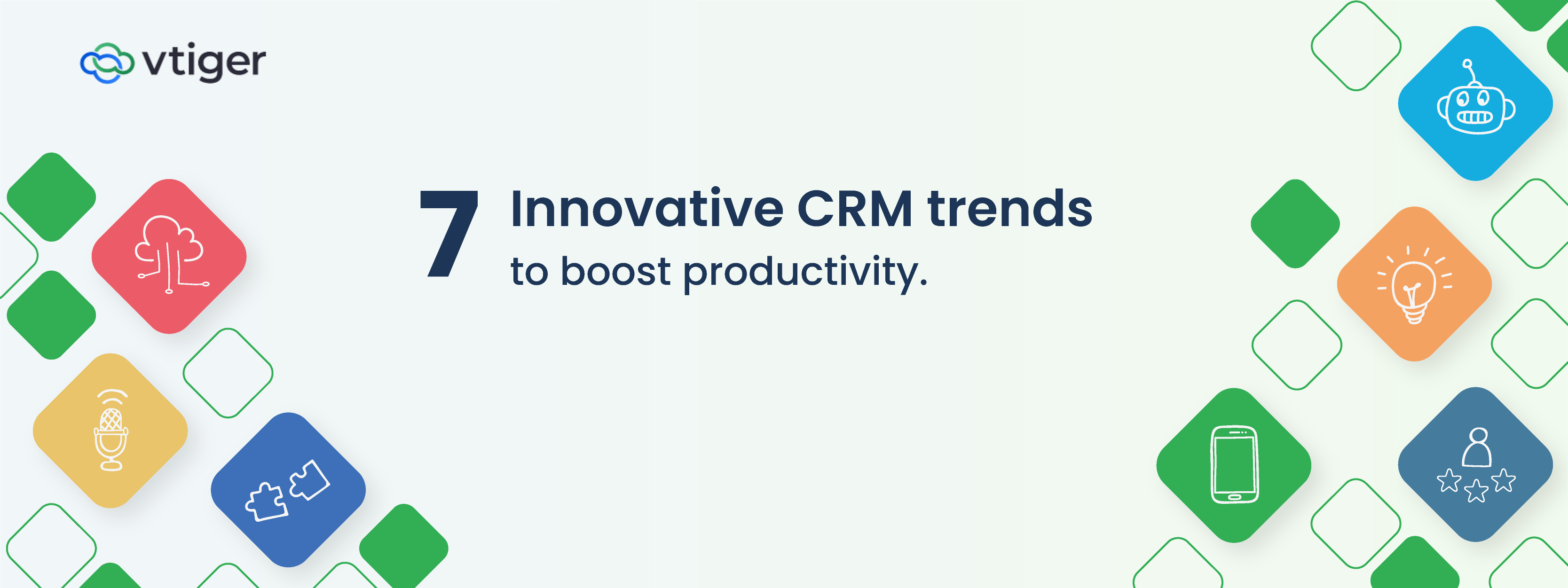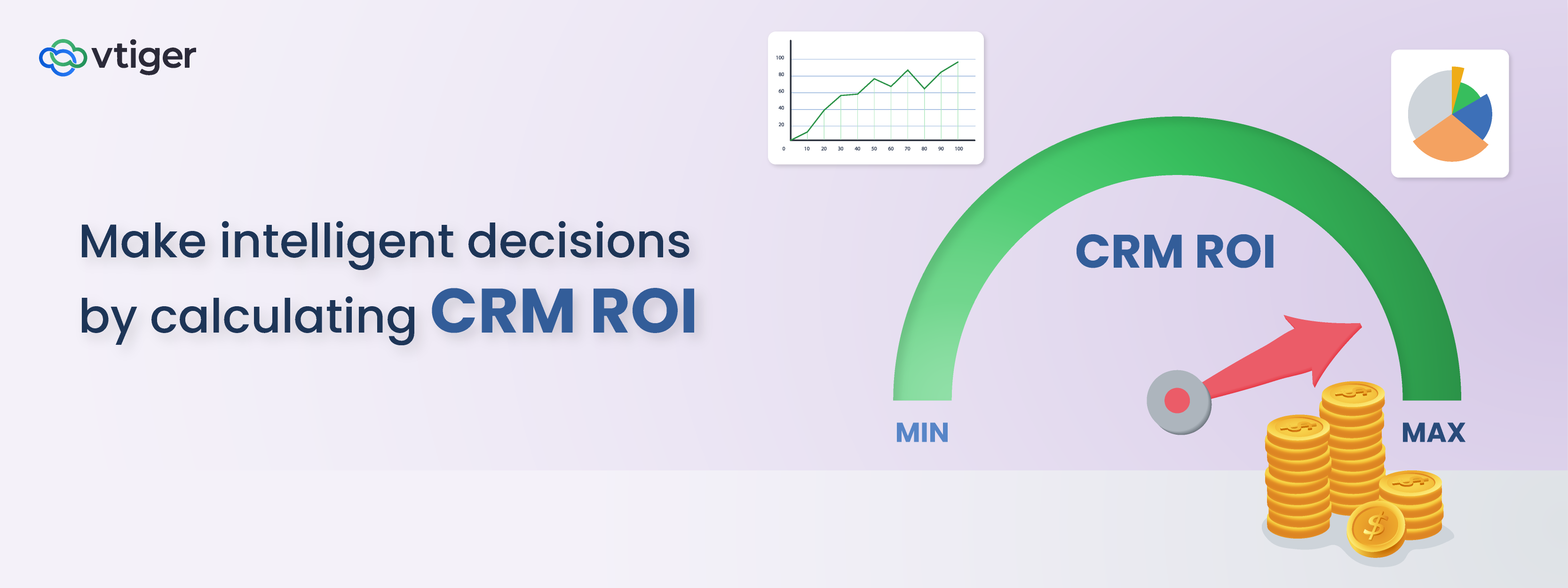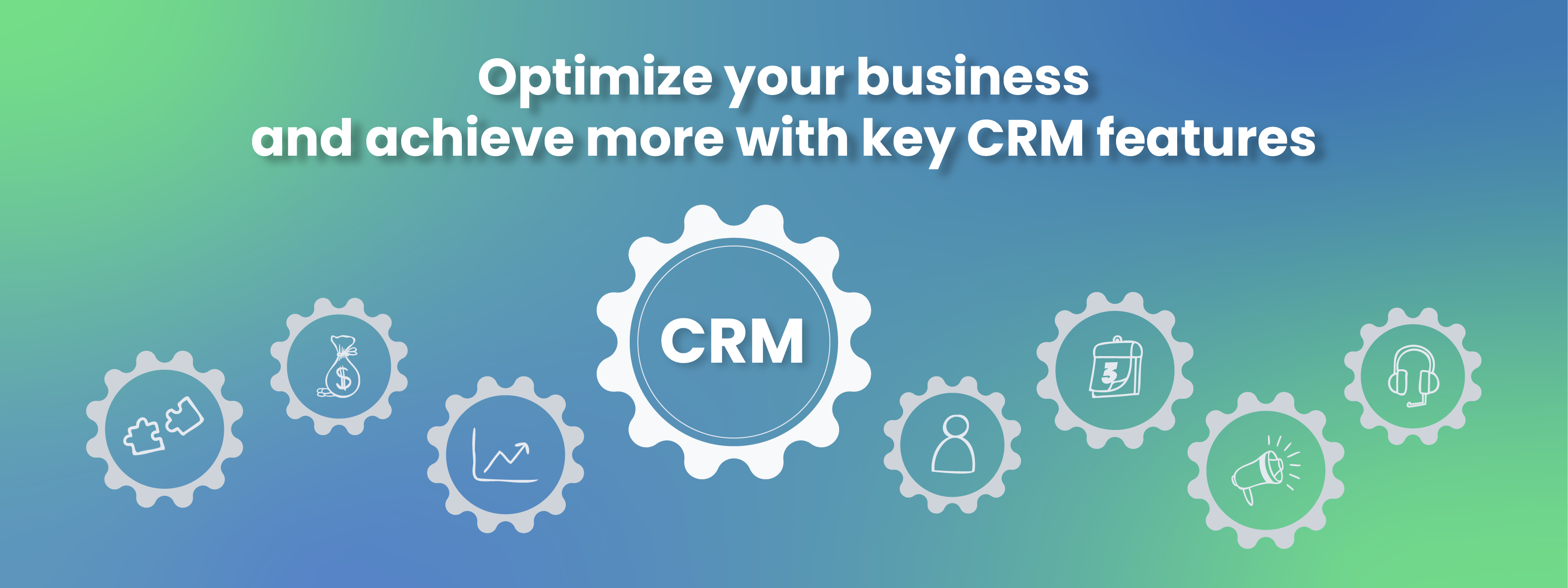Customer Relationship Management (CRM) software has evolved drastically – from a file that holds customer information like the Rolodex to a tool that stores customer data to help you provide the best-in-class customer experience. With its unique capabilities and features to drive business growth, using a CRM is not a choice but a must-have for businesses to sustain in today’s competitive world.
Indeed, businesses, to a large extent, are using a CRM. But what is more important for entrepreneurs is to keep up with the latest trends in CRM software that offer enhanced solutions to meet unique customer needs.
Read more about The Evolution of CRM from the 1950s.
In this blog, let us learn about the direction CRMs are taking today.
Top 7 CRM trends in 2022
CRMs have definitely revolutionized the way businesses work. According to a report on the key benefits of CRM by Software Advice, a significant majority of businesses (74 percent) said their system offered improved access to customer data. With CRM products having such a huge presence in the selling domain, let us look at some of the emerging CRM trends that you will need to optimize your sales goals:
Customer Experience

A successful brand is not just about providing multiple features and configurations to attract customer attention. It is also about placing customer delight at the forefront by providing quality service.
This is possible only when you are able to know and understand your customer.
A CRM should provide:
- Design (Easy to navigate screens)
- Functionality (Easy to use features)
- Robust data capabilities (360-degree view of the customer)
- Reporting features (Actionable insights)
Features like these help you focus on your customers with customer journey, mapping feedback, and providing exceptional support.
For example, with historical and current data, sales and marketing teams will be able to capture audience preferences. Support teams can ensure that their services cater to customer issues and demands.
With a CRM that helps you provide a good customer experience, you can increase revenues and retain customers.
Artificial Intelligence

AI was initially introduced to replace human effort in executing day-to-day activities. But have you ever thought about what role it plays in a business?
Businesses use CRMs to track, store and centralize customer information. With ever-increasing volumes of data, organizations have shifted their focus to implementing AI solutions that can extract and analyze customer data and provide real-time information to make quick decisions.
AI has also become more of a virtual assistant than a simple software for business.
Many CRMs have incorporated AI capabilities and here are a few samples of AI put to use:
- Lead Management: AI tools allow you to qualify, rate, and segregate leads from the first interactions. This helps you focus on potential leads and close deals faster. AI also simplifies the data entry process by capturing lead information from different sources and recording it in the CRM.
- Customer Segmentation: By utilizing the customer data, AI has the ability to segment customers based on their purchase history, demographics, etc. You can study different patterns in customer behavior and analyze current and future customer engagements with your business.
- Customer Support: AI is now being used as entry-level customer agent in the form of bots to provide immediate responses to live customer queries. AI in a CRM is also used to monitor employee performance and productivity. This in turn is used to coach teams to identify gaps in the process, train employees, and increase productivity.
- Analytics: When AI is integrated with CRMs, it provides sentiment analysis which means tracking different customer touchpoints and providing accurate information on customer satisfaction levels with the product. For example, call analytics provides insights into the quality of the calls. They also provide intelligent recommendations on the next best course of action.
As per Infoholic Research, the market revenue of businesses using CRM with AI will reach 72.9 billion by 2023. Therefore, make a smart decision and ensure your CRM includes AI in various activities to improve business productivity and team efficiency.
Internet of Things (IoT)

Internet of Things (IoT) is the process of connecting software to physical objects and exchanging data over the internet. These objects are embedded with sensors that are designed to perform activities from a distance with less human intervention.
As per a Gartner Report, ‘CRM combined with the power of IoT devices will transform business by 2025.’ By enabling IoT in your products, your CRM will get access to data from the products which helps you in elevating customer experience.
Manufacturing firms are mainly going to benefit from using a CRM coupled with IoT. You can identify errors or lapses in your products after the dispatch and rectify them before it gets delivered. When your sales rep or support teams are able to provide prompt solutions, it will eventually lead to seamless customer satisfaction.
You can also collect data using smart devices and get access to details like when and where the product was used by your customer which helps in minimizing data siloes. IoT will also assist sales reps in identifying customer dissatisfaction enabling them to plan an effective strategy to win more deals and increase sales revenue.
Having an IoT-enabled CRM is the next big thing you should add to your bucket list to reshape your business in a superior way.
Mobile CRM

Mobile CRMs lets you access the CRM applications on your mobile phones. Mobile CRMs are not just about getting access to customer data but building a mobile strategy to speed up business activities.
With employees working remotely or on the road, you want your teams to access customer information to close a deal, learn about a customer before a meeting, enter data into the system or resolve a case. During times like these, a mobile CRM comes to the rescue.
With half of the population doing business on their mobile phones, having a mobile CRM will be a great choice for your business. Mobile CRMs provide you with the option of working both online and offline. They mimic desktop versions of the CRM and provide you with the same features, intuitive UI, and enhanced security features to enable you to work from anywhere, anytime.
Knowledge Base

A knowledge base is a repository of business documentation in the form of help documents, user guides, how-to-articles, FAQs, use cases, etc. Its main purpose is to minimize the time spent on customer calls and share information to reduce escalations.
When you have a knowledge database, your customers will be able to get information quickly in a single place without having to search for it everywhere. You can also provide a customer rating option that will help you understand the frequency of content usage. With such helpful content, customers will be able to solve minor challenges by themselves leading to customer success.
Knowledge Bases help customer support teams to engage with customers effectively. They can also point customers toward these resources when they troubleshoot issues.
Social Media Integration

Today, it is rare to find someone who is not on social media. And, when it comes to a business, social media marketing is the best strategy to create awareness among people about your products or services.
But, simply doing brand awareness will not take your business to the next level. You need to have a system that helps you plan, track and manage customer interactions. A social CRM is the best way to carry it out effectively.
Social CRMs let you integrate your business’s social media accounts into the CRM. Integrating social media into a CRM can do wonders to understand customer preferences. Social CRMs allow you to see customer interactions on different platforms like Facebook, Twitter, LinkedIn, etc. Interactions and instant feedback from customers allow you to boost engagement levels and map customer sentiments. You can also monitor complaints and respond appropriately.
Social CRM helps you gauge where your audience spends most of their time. And, share posts, videos, etc., accordingly on that platform where the engagement level is higher. This lets you focus on generating quality leads and increasing conversion rates.
Voice Recognition

Voice Recognition (VR) software is giving machines the ability to interpret speech commands. VR technology interprets your words or phrases and translates them into text with the help of Natural Language Processing (NLP).
VR in the form of speech-to-text integration has made it possible to speed up your tasks using your voice. It is proving to be a powerful mechanism that allows you to reduce the time required for data entry. With its speech recognition capabilities, you can add relevant information at a higher speed.
Voice recognition in a CRM allows you to streamline processes that require manual input. You can use voice recognition to:
- Find a contact.
- Search contact fields like first name, last name, company, etc.
- Set timezones.
- Send emails.
- Edit customer information.
- Get calendar updates.
By looking at the trends, it is clear that CRMs will be able to do much more for your business in the future. If your goal is to be an entrepreneur, plan your CRM strategy logically to get hold of success immediately.
We at Vtiger have already enabled our CRM with some of these technologies. Check out our features like Calculus AI, Vtiger 360, Voice Enablement, and Knowledge Base on our website.
And, take full advantage of Vtiger CRM by signing up for a free trial!



